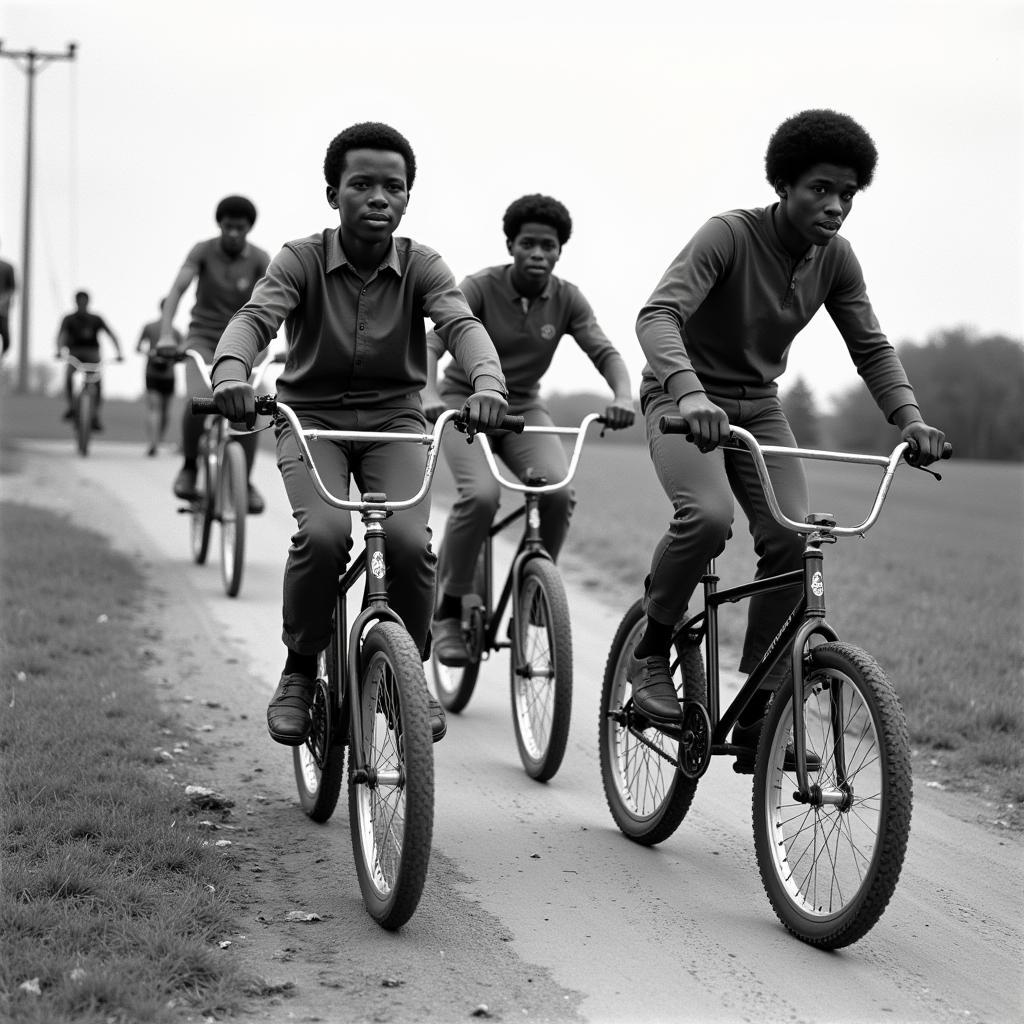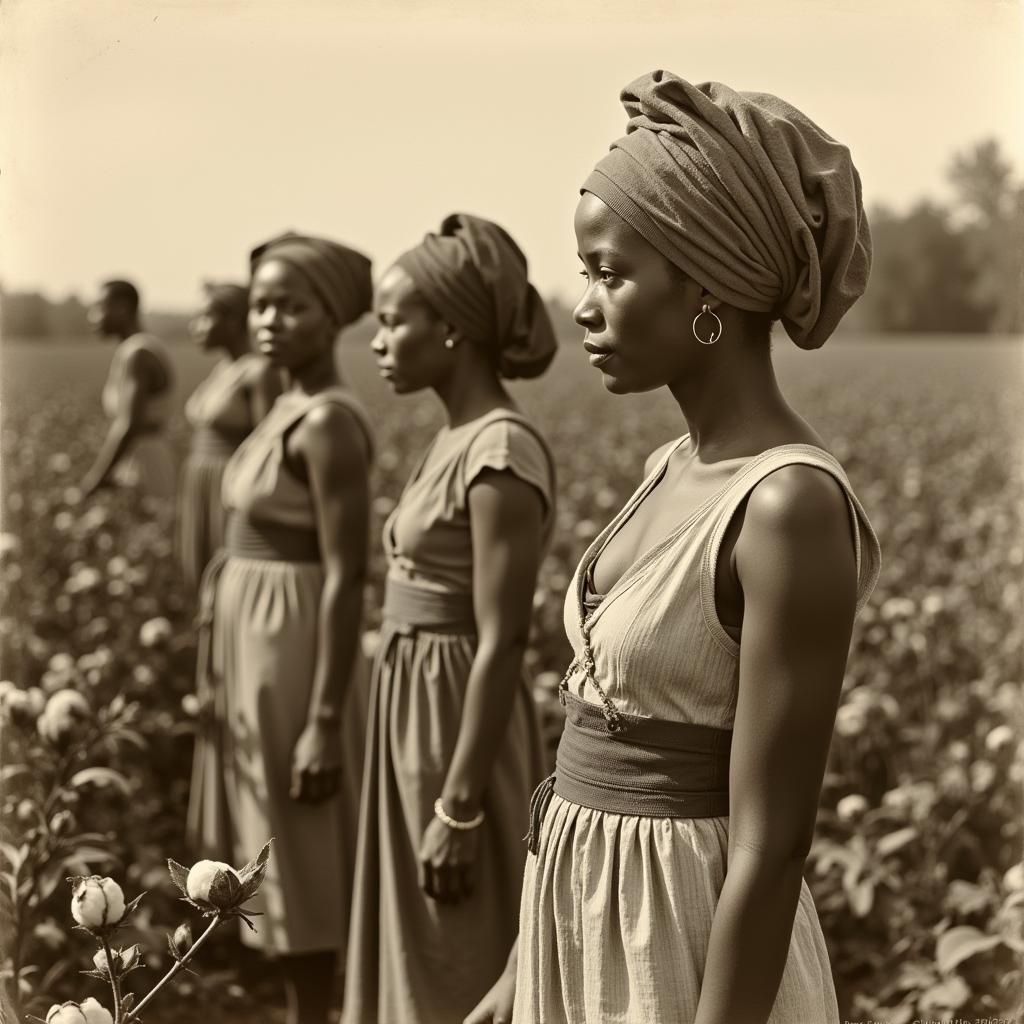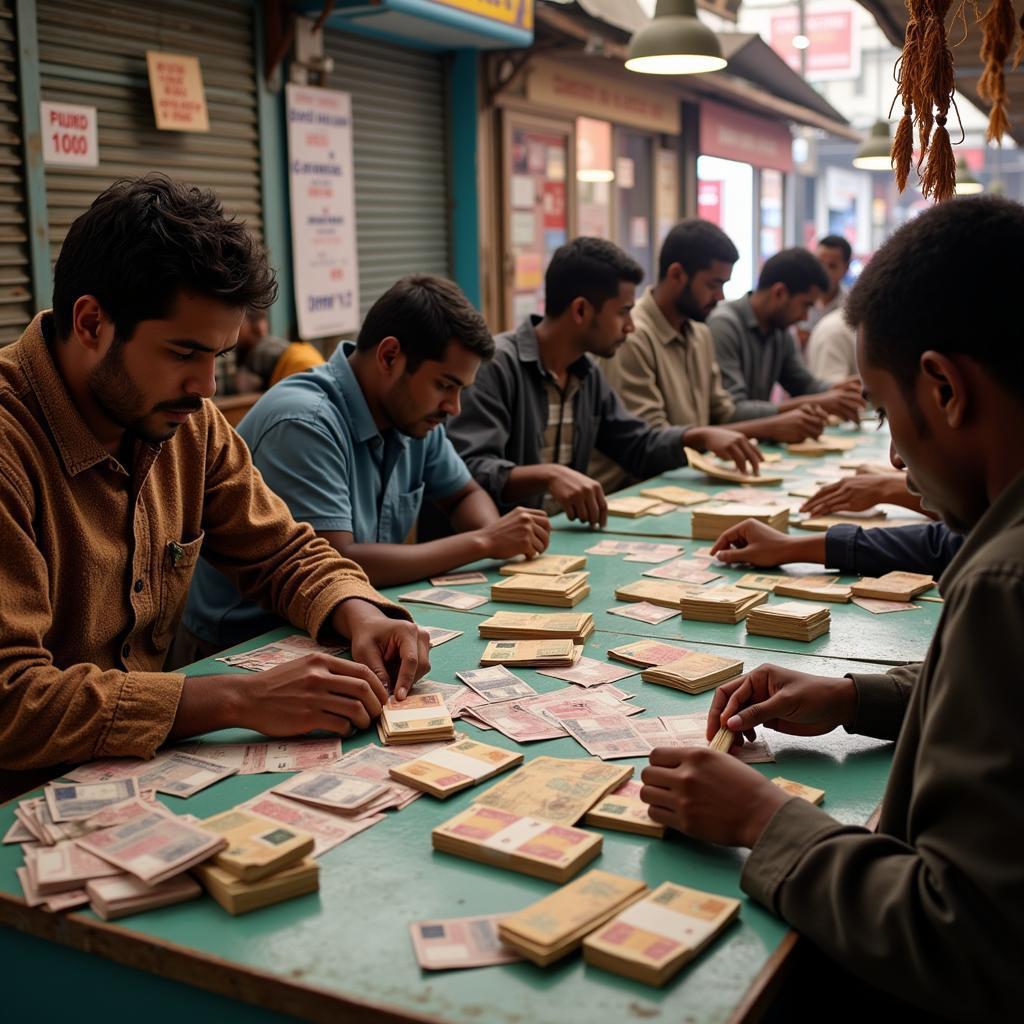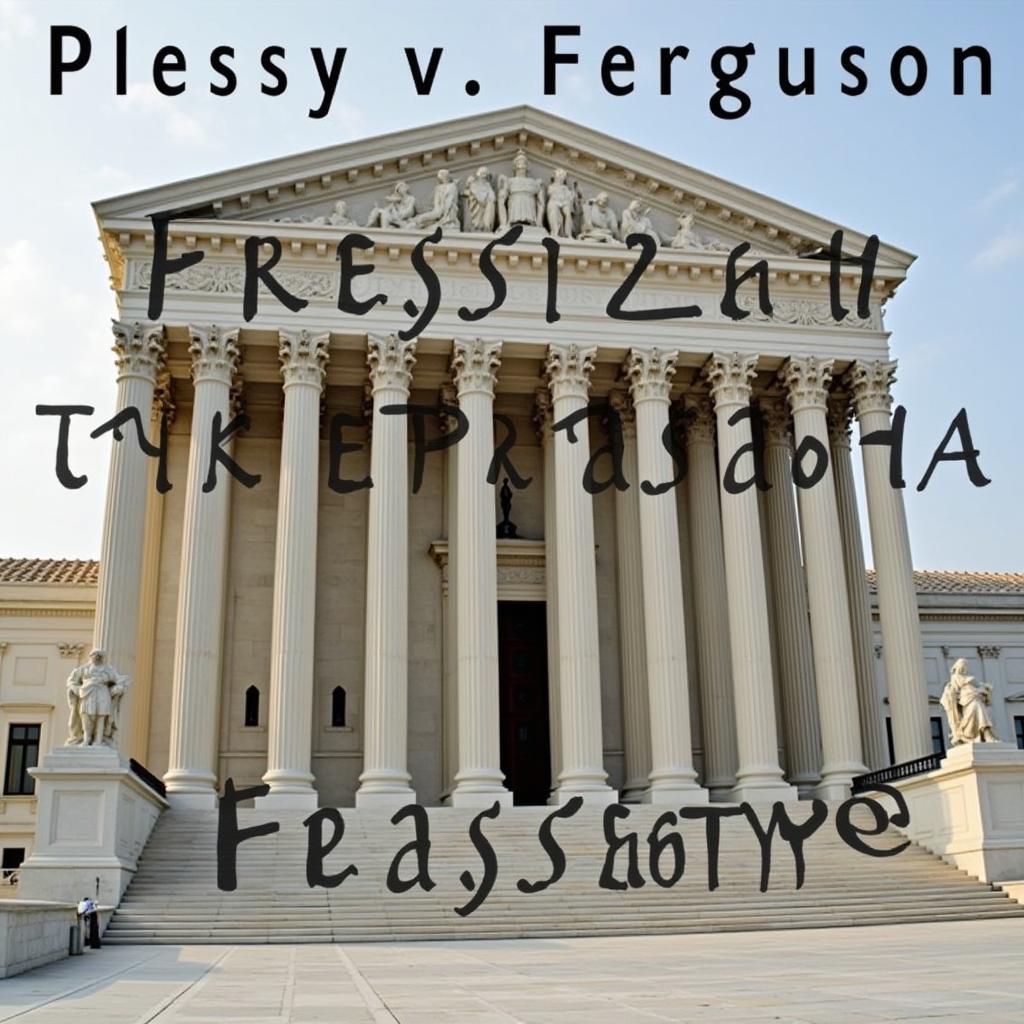Vibrant Expressions of African Heritage: Exploring African Festivals in Trinidad
Trinidad and Tobago, a twin-island nation nestled in the southern Caribbean, boasts a rich and diverse cultural tapestry woven from African, Indian, European, and Indigenous influences. This vibrant blend is strikingly evident in the nation’s festivals, particularly those that celebrate the enduring legacy of its African heritage. These festivals offer a captivating glimpse into the traditions, spirituality, and artistic expressions rooted in the African continent, transcending time and geographical boundaries.
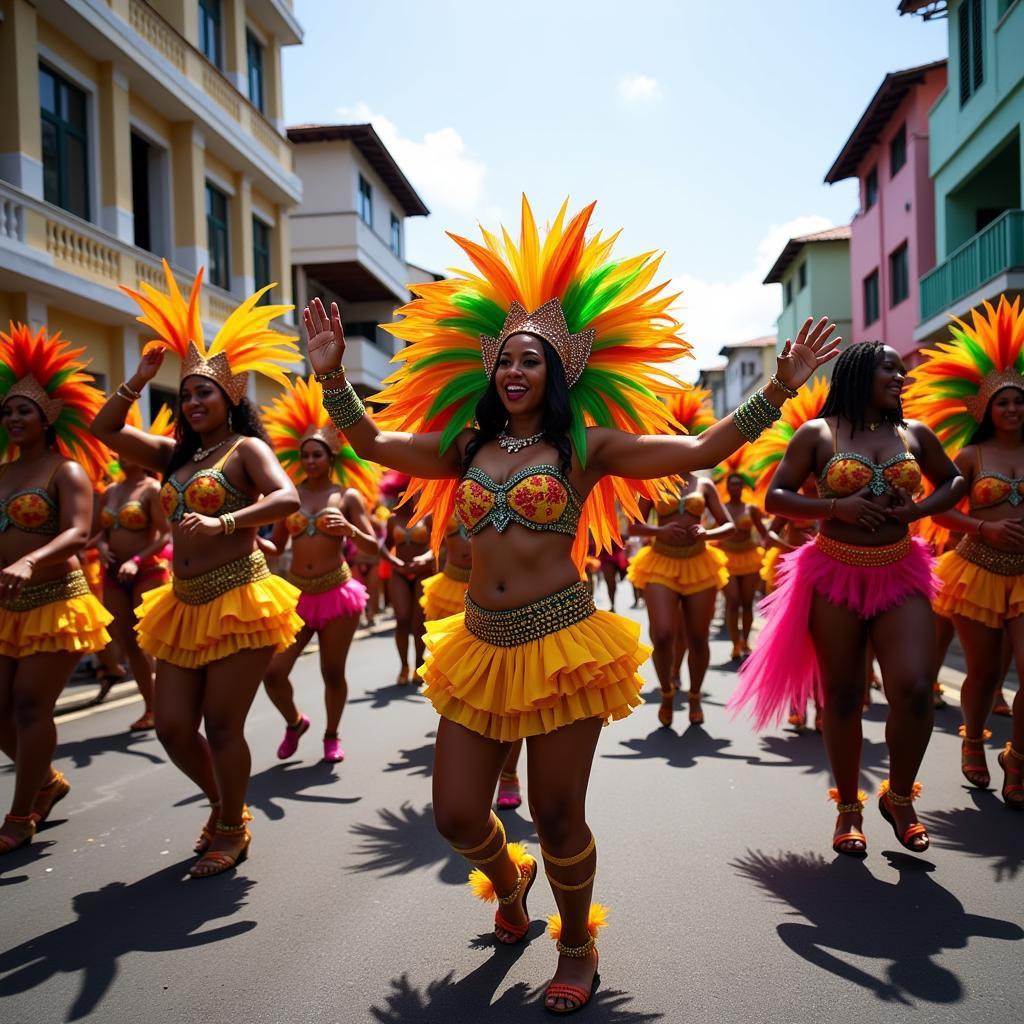 Carnival celebration in Trinidad, showcasing colorful costumes and rhythmic dancing
Carnival celebration in Trinidad, showcasing colorful costumes and rhythmic dancing
From Canboulay to Carnival: A Journey of Resilience
One cannot delve into the realm of African Festivals In Trinidad without acknowledging the historical significance of Canboulay. This pre-dawn procession, deeply rooted in the resistance and resilience of enslaved Africans, laid the groundwork for the world-renowned Trinidad Carnival. During the 18th and 19th centuries, enslaved Africans on sugar plantations found solace and a defiant spirit in their music, dance, and rituals, often performed under the cover of night. Canboulay, meaning “burning cane” in French Creole, emerged from these clandestine gatherings.
These nocturnal processions, illuminated by flickering torches and fueled by the rhythmic beating of drums, became a powerful symbol of African identity and resistance against colonial oppression. The rhythmic pulsations of the drums, echoing through the night, served as a form of communication and unity among enslaved Africans from various backgrounds. african dances in the caribbean often incorporated elements of storytelling and ritualistic movements, reflecting their ancestral beliefs and traditions.
However, colonial authorities, threatened by the subversive potential of these gatherings, attempted to suppress Canboulay. The spirit of resistance, however, proved indomitable. When authorities banned drumming and stick-fighting, essential elements of Canboulay, the people responded with even more fervor and creativity. They incorporated bamboo joints, bottles, and other readily available materials to recreate the rhythms that were their lifeline to their African heritage.
The Evolution of Carnival: A Fusion of Cultures
Over time, Canboulay evolved into what we know today as Trinidad Carnival, a vibrant spectacle of music, dance, and masquerade. The festival retains echoes of its ancestral roots in its pulsating rhythms, vibrant costumes, and the spirit of revelry and defiance that permeates the celebrations. Carnival has become a unique expression of Trinidadian identity, a testament to the resilience and creativity of its people.
Beyond Carnival: Celebrating African Traditions Year-Round
While Carnival reigns supreme, Trinidad is home to a plethora of other festivals that showcase the island’s African heritage. These festivals offer a window into the spiritual beliefs, musical traditions, and culinary delights that have been passed down through generations.
Orisha Festivals: Honoring the Divine
One fascinating aspect of African spirituality that thrives in Trinidad is the reverence for the Orishas, deities representing various forces of nature and human experience. These deities, originating from the Yoruba religion of West Africa, play a significant role in the lives of many Trinidadians, transcending religious boundaries. Throughout the year, communities come alive with festivals dedicated to specific Orishas, such as Shango, the god of thunder and lightning, and Yemoja, the goddess of the ocean. These festivals often involve elaborate ceremonies, drumming, singing, and offerings to appease and honor the Orishas.
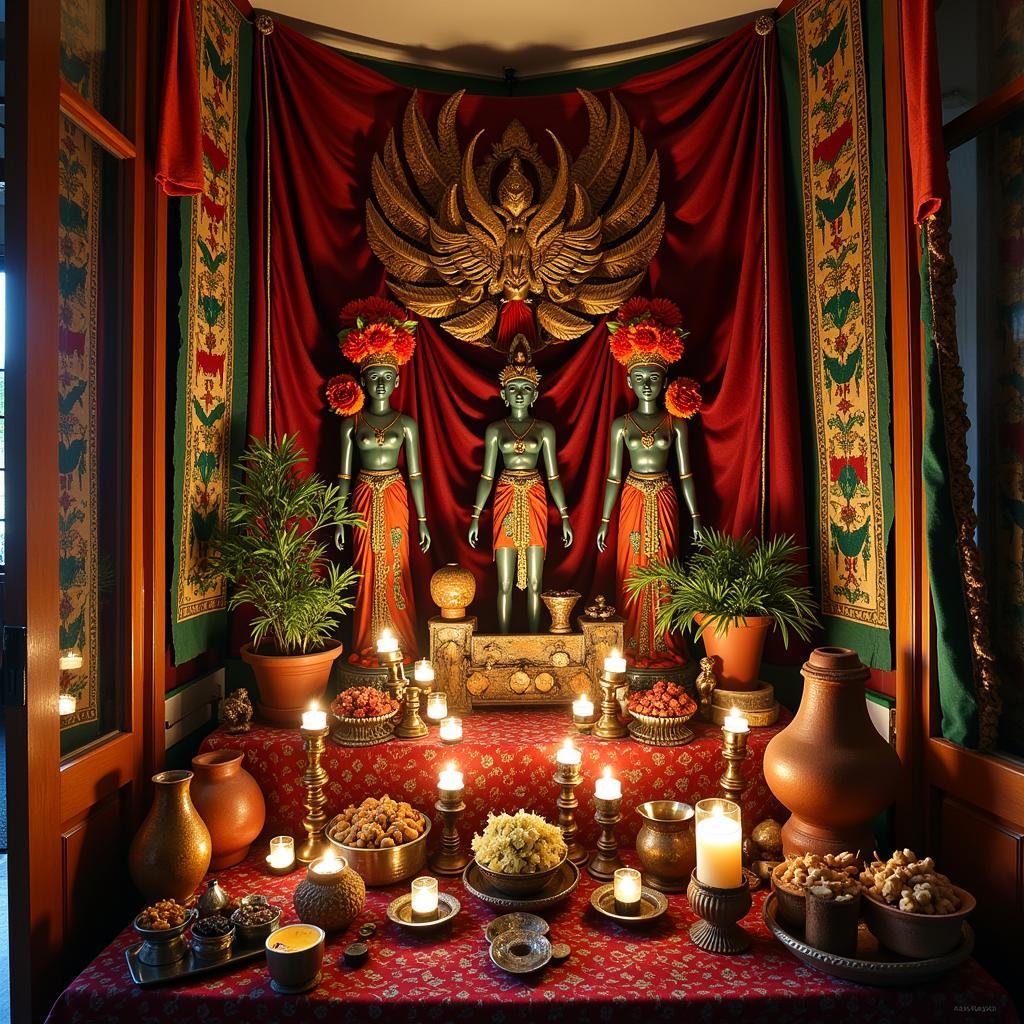 An Orisha shrine adorned with colorful fabrics and offerings
An Orisha shrine adorned with colorful fabrics and offerings
The Rhythmic Soul of a Nation: Music and Dance
Music and dance lie at the heart of African cultural expression, and Trinidad is no exception. From the pulsating rhythms of the steelpan, an instrument born on the island, to the hypnotic beats of the djembe drum, African musical traditions resonate deeply within the nation’s soul. african festivals facts highlight the importance of music and dance as a means of storytelling, celebration, and spiritual connection.
The rhythmic interplay of drums, accompanied by soulful singing and intricate dance movements, transports participants and onlookers alike to a realm where ancestral spirits are honored and celebrated. These traditions, passed down through generations, serve as a testament to the enduring power of music and dance to connect people to their heritage.
A Culinary Journey: Flavors of Africa in Trinidad
No exploration of African culture would be complete without savoring the culinary delights that have been passed down through generations. african diaspora food in Trinidad reflects a fusion of African ingredients and cooking techniques with Caribbean flavors. From hearty stews like callaloo, a dish with West African roots, to the savory flavors of pelau, a one-pot rice dish with origins in the rice dishes of West Africa, Trinidadian cuisine offers a tantalizing exploration of African flavors.
Preserving Heritage, Embracing the Future
African festivals in Trinidad are not merely celebrations of the past; they are living expressions of a vibrant culture that continues to evolve while honoring its roots. These festivals serve as a reminder of the strength, resilience, and creativity of the African diaspora, and their contribution to the rich tapestry of Trinidadian culture. By embracing these traditions and passing them on to future generations, Trinidad and Tobago ensures that the spirit of Africa continues to thrive on its shores.
